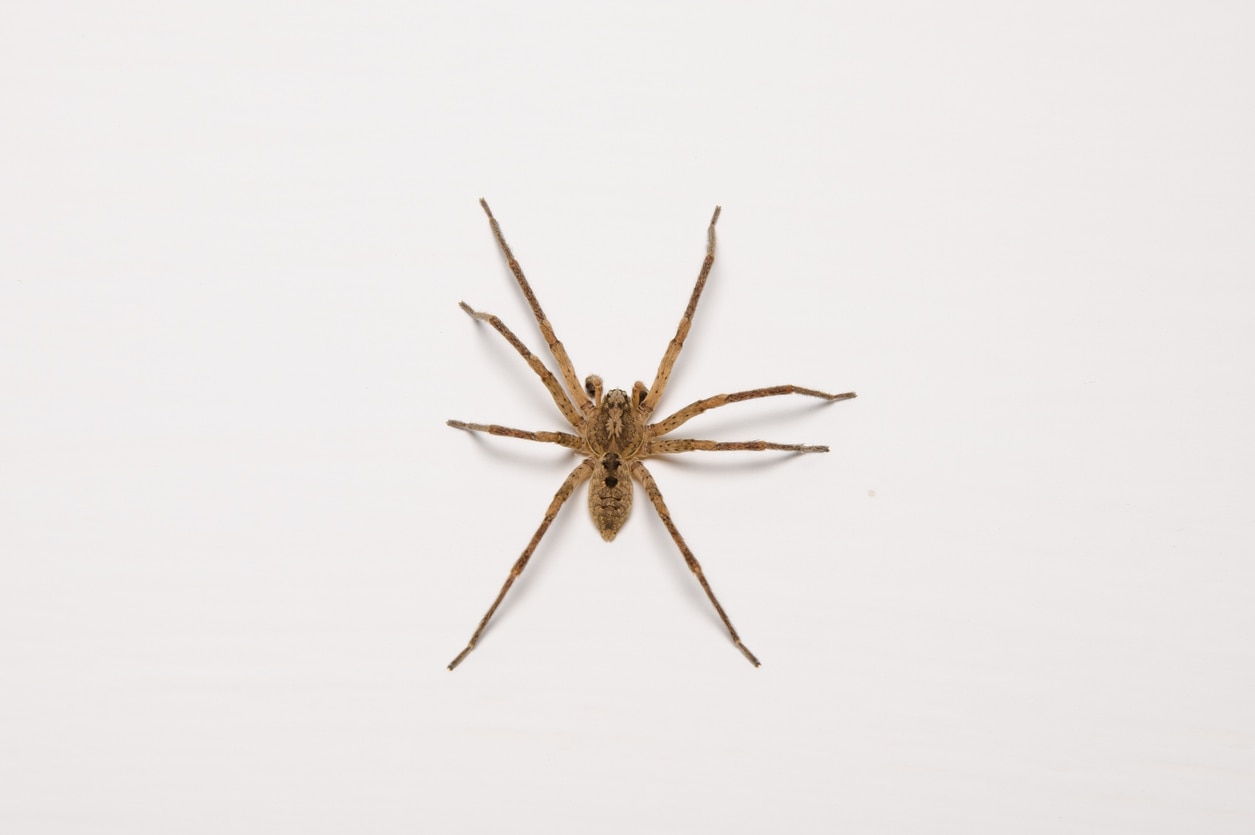Brown Recluse Spider Bite Poisoning in Cats
What Is Brown Recluse Spider Bite Poisoning in Cats?
The irrational fear of spiders (arachnophobia) is a real and common concern for many people. This fear may cause anxiety about spiders biting not only us but also others, including our feline companions.
Cats add to this anxiety because they are usually fascinated by spiders. They may crawl into spaces where spiders live or even bat one around like a toy. Spider bites in cats are relatively uncommon, however, as most spiders have fangs that are too small to penetrate feline skin.
While most spiders are harmless, one of the most poisonous spiders in the United States, whose bite usually requires medical attention, is the brown recluse spider (Loxosceles reclusa).
The bite of a brown recluse spider causes a wound that may turn into a necrotic lesion (area where skin appears to be dying) if left untreated. If you see such a lesion on your cat and live in an area where brown recluse spiders are common, contact your veterinarian immediately.
Symptoms of Brown Recluse Spider Bite in Cats
Brown recluse spider bites are not painful—at first. The venom contains toxins that cause local inflammation and tissue necrosis (death). Ninety percent of brown recluse spider bites result in a small, red bump that will heal on its own. Only 10% of the bites require immediate medical attention.
In the most severe cases, three to eight hours after the spider bite, the area may develop itchiness, pain, swelling, and a skin lesion. This may look like a blister that forms a “bull’s-eye” lesion with the center developing a dry, black scab. Over the next two to five weeks, the tissue around the scab may fall off, leaving a deep, slow-healing ulcer and localized tissue damage.
The brown recluse spider’s bite can be very similar to other insect bites or any condition that causes necrotic sore, such as bacterial or fungal infections or pressure ulcers. It can be very difficult for veterinarians or physicians to identify.
In extremely rare cases, brown recluse spider bites may cause systemic reactions such as vomiting, fever, elevated heart rate, trouble breathing, kidney failure, clotting abnormalities, and even coma. These reactions typically occur within three days of the bite.
Causes of Brown Recluse Spider Bite in Cats
The brown recluse spider can be found worldwide. In the United States. They are established in 16 states: Alabama, Arkansas, Georgia, Illinois, Indiana, Iowa, Kansas, Kentucky, Louisiana, Mississippi, Missouri, Nebraska, Ohio, Oklahoma, Tennessee, and Texas. There have also been reported isolated cases of brown recluse spider bites in Arizona, California, the District of Columbia, Florida, North Carolina, New Jersey, Pennsylvania, Washington, and Wyoming.
Brown recluse spiders live in dark, warm places. They can be found indoors. Most commonly in basements or attics, or outdoors under rocks, logs, and debris. They have very small fangs that make it difficult to bite through clothing. They are not aggressive, and they will only bite if they are disturbed.
Most bites occur due to body pressure, such as if your cat inadvertently traps a spider against their skin by rolling over one, or if they pursue one.
It is important to know if you live in an area where brown recluse spiders are common, so you can better determine with your veterinarian if your cat has been bitten by one.
What Does a Brown Recluse Spider Look Like?
Brown recluse spiders are known for the dark, violin-shaped mark on their backs, with the neck of the violin pointing toward the rear (abdomen) of the spider. They range in color from tan to dark brown, and with their legs fully extended they are about the size of a U.S. quarter.

Image Credit: iStock.com/Buffy1982
A slightly lesser-known but significant identifying feature is their eye pattern. Brown recluse spiders have a semicircular arrangement of six eyes (three groups of two), while most other spiders have eight eyes.
Many harmless brown spiders are often mistaken for the brown recluse, so it may be helpful to bring a specimen to your veterinarian for identification if possible.
How Veterinarians Diagnose Brown Recluse Spider Bite in Cats
There is no specific veterinary test for brown recluse spider bites or venom. Diagnosis of a brown recluse spider bite is based on your cat’s medical history, symptoms, and where you live.
To diagnose a brown recluse spider bite in your cat, your veterinarian will:
-
Perform a physical examination to look for fever, wounds, and other clinical signs
-
Order a complete bloodwork, serum blood chemistry, and urinalysis for a baseline evaluation and to rule out other possible causes
-
Take a bacterial culture of any necrotic wounds to assess primary or secondary infection
If the suspected spider can be safely collected (such as by using a glue trap), this may help in identification. But extreme care must be taken not to be bitten.
Treatment of Brown Recluse Spider Bite in Cats
Treatment of brown recluse spider bites is based on supportive care, possibly including IV fluids for hydration, antihistamines for itchiness, pain medication, anti-nausea medication, and antibiotics.
In severe cases, blood transfusions may be needed. Surgery, hyperbaric oxygen, and steroids have not been shown to be effective treatments. Currently, there is no brown recluse antivenin (antitoxin), as experimental studies have had disappointing results.
Recovery and Management of Brown Recluse Spider Bite in Cats
Wound care and full recovery may take weeks to months, but the prognosis is good if systemic signs are not noted. Death from brown recluse bite in cats is very rare.
Prevention of Brown Recluse Spider Bite in Cats
Brown recluse spiders can be found both indoors and outdoors, so even house cats may be susceptible to their bites.
If you live in an area with an endemic brown recluse spider population, reduce outdoor structures where spiders can hide, such as wood piles or trash bags. In the house, keep areas free of clutter or boxes that might attract spiders.
The use of glue traps can be a great nonchemical way to catch spiders. Consult with an exterminator service to help rid your house of any spiders, but be sure to inform them of any pets in the house before they apply any chemicals.
Health Tools
Not sure whether to see a vet?
References
Hovda L, et al. Blackwell’s Five-Minute Veterinary Consult Clinical Companion: Small Animal Toxicology. 2nd ed. John Wiley & Sons; 2016.
Featured Image: iStock/101cats
